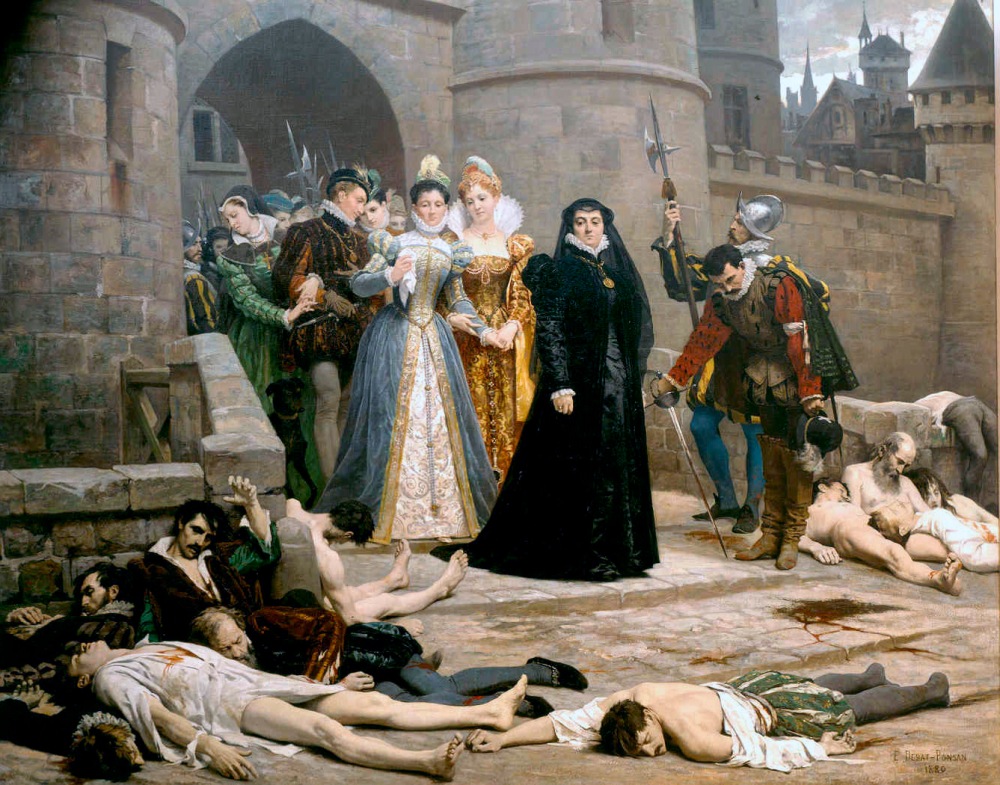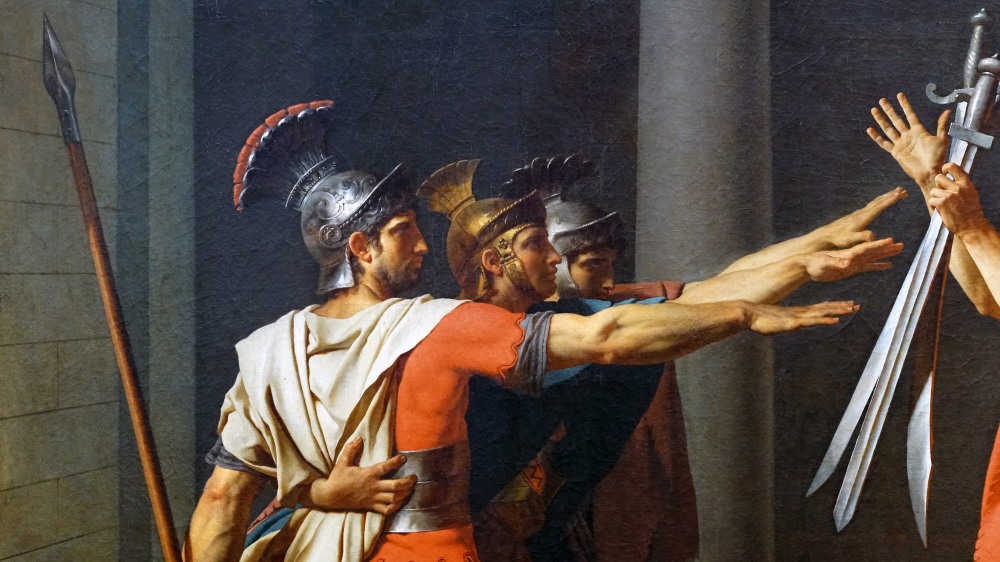If Christianity becomes undiscussable, because of a female sensitivity from the Christian side, then like its secular manifestation, multiculturalism, it enjoys a female victory. And let no one be deceived, where the “honest” Christian cannot confront, like the woman, like the “wise serpent,” he will whisper and conspire to ostracize and ruin, unashamed of using malleable enemies to attack stronger enemies.
Having an unfettered debate with him about theological matters becomes as hard to achieve as a calm, reasonable discussion with a Jew about the tenability of six million Jewish deaths during the Holocaust. And here, the Jew’s case is six million-fold stronger.
That one is required to respect or much less tolerate the wild and baseless ideas or faith of another man out of “Religious tolerance” or “tolerance” more generally is itself unacceptable. These taboos are not innocuous. In a generation or two, one’s son might be ostracized, drummed out of a livelihood or even beheaded all while ostensibly his persecutor is rewarded in heaven or on earth. All because one insisted on being polite and therefore silent before “men of different faiths.”
Indeed, pressure not to criticize Christianity in the “name of unity” should be understood in exactly the same way the left is reluctant to criticize Islam in the “name of unity.” Here it should be understood that whatever one places above criticism, whether multiculturalism, Jewry, or Jewry as God in the Abrahamic faiths, one worships. Hence the “respectful pagan, ” who refuses to engage in “iconoclasm,” is himself a Christian. Christians are respectful to pagans as Jews are, only when they may not apply force.

With “respectfulness” one will see one’s race lose its voice, its sobriety, its mind, its unity, its freedom and eventually its existence. Instead, demarcations must be made. There is, in fact, no need for people who are correct to be unified with people who are wrong, anymore than there is a need for truth to be joined with falseness, so that falseness “feels included.”
Nothing developed “by committee” proves worthwhile. Rather we should try to make the world as correct as possible with fools forced to conform to this correctness out of sheer embarrassment or to quietly disappear.
Indeed, no movement should begin without a clear understanding of its goal and end. Hence necessarily bad ideas must be discarded from the start. To rule and to charm, we are obliged to purge from ourselves any trace of slave thinking, madness and simple stupidity. These are not points for discussion. To gain followers, we are to be masters.
In general, the premise of a “unity” in an Aryan amelioration movement, where some opinions shouldn’t be discussed lest it be disruptive to a saving unity, begins with the assumption that some weaklings will forfeit the fight all together if they discover leaders disagree with their wrong, woefully uninformed, plain stupid, harmful and even disastrous positions. This reveals they never believed in the broader fight. Indeed, it is so meaningless to them even a temporary alliance for its success is uninteresting to them if one dares violate their superstitious taboos.

Rather, in truth, they, detecting life, were merely interested in turning it toward their torch lit cave. Whereas we, on the other hand, happily accept temporary allies pushing in our interests, provided they are not also interested in controlling our thought and speech. Again, here we distinguish between political faces and brains contemplating and solving serious problems. The latter must remain unfettered by concerns about “popularity.” His significance is known when he has actually solved a deeper, abiding problem.
It is not “divisive” to excise budding cancers. We have already separated ourselves from deracinated “conservatives.” Was this “divisive” or did it see the best people emerge and the worst people disappear?
Is it “divisive” to separate ourselves from a Religion that is divisiveness incarnate, which admits that it has come to turn “A man against his father, a daughter against her mother,” [1] where “a man’s enemies will be the members of his own household?” [2] We are as civil as others allow us to be, but firm. We attack the creed, the ideas, not the man nor the men. Yet nonsense, madness and deliberate JED (Jewish Esoteric Demoralization) will be identified for what it is. We need clear heads to win.

Christianity and dead traditions in general—the huffy, dopey veneration of Norse Gods or the “profound” contemplation of Hindu Gods— by which one piously pretends to be inspired, appeals to the weariness and sloth of men. They say, “puzzle yourself no more for solutions, one has already been discovered in a dead faith, die with it.” We have, some believe, all eternity for death, let us not live dead as well. Alternatively, we have all eternity for life, an eternal reoccurrence. So either way, let us make it a good life.
One sees already that Christianity settles, fights to be one of many cults, even if one of many Christian cults. Christianity is happy merely to be sectorial, broken. But, in truth, there is at one time in the world only one cult of meaning, one chieftain God who points the direction, and smaller cults that follow it, serve it, support it. Through the Christian period and, obviously at present, it is Judaism.
Unity is achieved, when something worth unifying around appears. This is good. Otherwise men become unified in a bad direction. Rather a good direction must precede unity. In the future it will be Apolloism. This will not be so because I call for it and prophesize it—though I do and this helps. It will be so, merely because this future, and the future in its most general shape is deducible. To have the power of prophesy, one needs merely eyes.

When Christianity was “in power” its acceptance, like the acceptance of Communism and Multiculturalism in their heydays, was part of a requisite will to power. Yet Christianity, in general, provides the individual of a certain type a will to power. It is that individual whom, through Christianity, is suddenly given a means by which he may attract attention and its attendant power however often limited.
But how can he be called selfish or attention and power seeking when he is saving souls, when he is seeking the “power” of others? Hence like the Jew he becomes the inherently, perhaps unwittingly insincere “Anti-power, power seeker.” Christianity, and the ancient Chthonic cults upon which it is based, may be the greatest paradox known to man.
Gently, we call Christians what the knowledgeable Jewish Esotericist Stan Lee calls them: “Spiderman Fans.” And that, as this study reveals, is by far the politest appellation we can find among Jewish Esotericist, who are far from displeased with the phenomenon of Christianity. While laughing at the main, hopefully we can tease some number of them back to reality. But even they might wisely be viewed as former drug addicts.
[1] Matthew 10:35
[2] Matthew 10:36
Reblogged this on Alchemical Virgo.
LikeLike